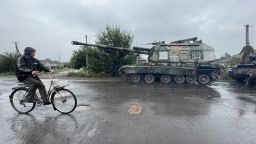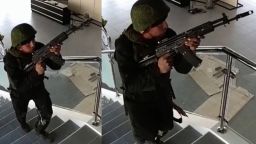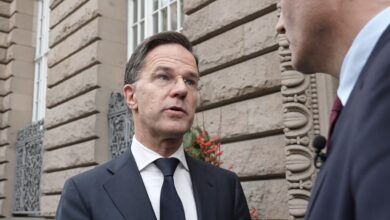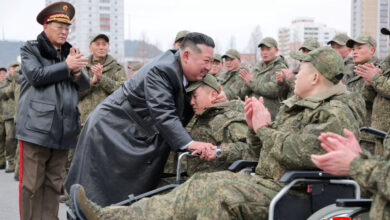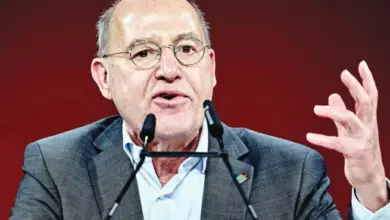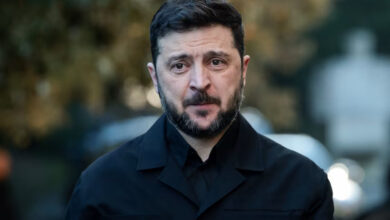Ukraine’s Defense Ministry said at least 440 “unmarked” graves were found in the city in recent days. The country’s President Volodymyr Zelensky said Friday that some of the bodies found in Izium showed “signs of torture,” blaming Russia for what he called “cruelty and terrorism.”
Zelensky posted a photograph of the ongoing exhumation of bodies at a mass burial site near the city of Izium. In a text accompanying the photograph on his Telegram channel, Zelensky wrote: “The whole world should see this. A world in which there should be no cruelty and terrorism. But all this is there. And its name is Russia.”
Izium was subject to intense Russian artillery attacks in April. The city, which sits near the border between the Kharkiv and Donetsk regions, became an important hub for the invading military during five months of occupation. Ukrainian forces took back control of the city on Saturday, delivering a strategic blow to Russia’s military assault in the east.
When CNN arrived to the mass burial site on Friday afternoon, officials were transporting body bags, including one that appeared to be holding something very small, into a refrigerated truck.
Most graves at the burial site are individual graves, with wooden crosses placed at the head of the dirt mounds. Some with names and numbers handwritten on them. One had a number as high as 398. Another with the name of an 82-year-old man. One official at the site told CNN that investigations would have to determine when these people died.
Further down in the forest lies what appeared to be a former military position, with tank positions dug deep into the ground.
A policeman at the scene told CNN that the spot is a mass grave where 17 bodies were found.
“Here are civilian bodies and military ones further along,” Igor Garmash, an investigator at the scene said of the specific part of the site he was examining, pointing to a location nearby.
“Over 20 bodies have been examined and sent for further investigation,” he told CNN.
Ukraine’s Center for Strategic Communications said on Thursday that some of the graves discovered at Izium were “fresh,” and that the corpses buried there were “mostly civilians.”
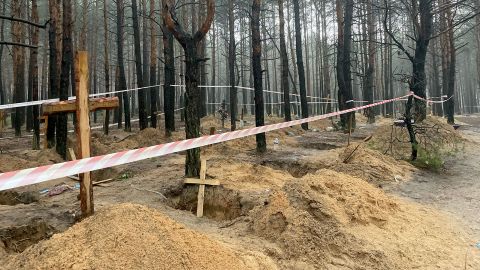
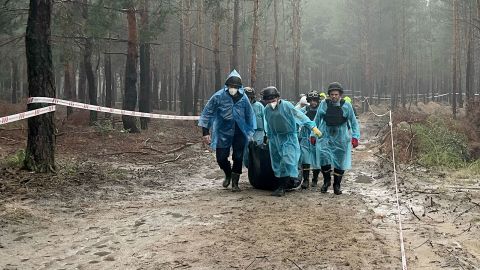
Dmytro Lubinets, the Ukrainian Parliament’s Commissioner for Human Rights, said in a video statement from the site that “there is a whole family right next to me… This is a young family… The father was born in 1988, the wife was born in 1991, their little daughter was born in 2016.”
He said local people told the investigators that the family had died in a Russian airstrike.
“Also we saw here a mass burial of servicemen of the Ukrainian army. The way they were buried – you will see evidence that their hands were tied, they were killed at close range,” Lubinets said.
An Izium resident living across the street from the mass burial site told CNN the Russians first hit a nearby city graveyard with an airstrike and then moved in.
“They brought their special machines. They dug some trenches for their vehicles. We only heard how they were destroying the forest,” Nadezhda Kalinichenko told CNN.
She said she tried not to go out during the time the city was under the Russian occupation because she was too scared.
“When they left, I don’t know if there was fighting or not. We just heard a lot of heavy trucks one night a week ago,” she said.
‘Bloody brutal terror’
Zelensky said during his address on Thursday that Russia must be held accountable for deaths there, and in other cities where large numbers of bodies had been found.
“Bucha, Mariupol and now, unfortunately, Izium… Russia leaves death everywhere. And must be responsible for it. The world must hold Russia to real responsibility for this war. We will do everything for this,” he added.
The Governor of the Kharkiv region, Oleh Syniehubov, said that “the scale of the crimes committed by the invaders in Izium is enormous. This is bloody brutal terror.”
Syniehubov said that “450 bodies of civilians with traces of violent death and torture were buried in a forest belt. It is difficult to imagine something like this in the 21st century, but now it is a tragic reality in Izium.”
Syniehubov said that among the bodies exhumed on Friday “99 percent showed signs of violent death.”
“There are several bodies with their hands tied behind their backs, and one person is buried with a rope around his neck. Obviously, these people were tortured and executed. There are also children among the buried,” he said.
Meanwhile, Oleh Kotenko, Ukraine’s commissioner for missing persons, said in a Telegram post that search operations for the remains of “fallen heroes” were proceeding cautiously throughout the region.
“The biggest problem is that some areas are still mined. Despite this, we continue to work, because we have to return each hero home so that the families can honor the memory of the soldiers who died for Ukraine in a dignified manner as soon as possible,” Kotenko said.
Zelensky visited Izium on Wednesday and told journalists he was “shocked” by the number of “destroyed buildings” and “killed people” left in the wake of the Russian occupation.
In his nightly address on Friday, Zelensky said exhumation of the bodies at the mass burial site was continuing and it was still “too early to speak about the total number of people buried there.”
He added that investigations were taking place in all areas of the country that had been recaptured from Russian forces and that a number of civilians, including foreigners, who had been held captive in occupied cities and towns had been found alive.
Among the foreigners rescued were seven students from Sri Lanka, he said. They were studying in Kupyansk Medical College but were captured by Russian soldiers back in March and held in a basement. “Only now, after the liberation of Kharkiv region, these people were rescued and are being provided proper medical care,” Zelensky said.
A United Nations source has told CNN that a team from the UN’s human rights monitoring agency – the OCHR – would be going to Izium and areas around it as soon as possible.
The War Crimes investigation team may follow after that, the source said. Their specific destination remains unclear at this time.
Moscow was using Izium as a launching pad for attacks southward into the Donetsk region and Kupyansk, some 48 kilometers (30 miles) to the north of Izium, and as a rail hub to resupply its forces.
Zelensky also thanked foreign governments for sending investigators and prosecutors to investigate alleged human rights abuses by occupying forces in Ukraine, adding that all occupied areas would eventually return.
Ukrainian forces have been on a sustained military offensive, particularly in the country’s northeast and southern regions.
Zelensky said on Tuesday that 8,000 square kilometers (3,088 square miles) of territory had now been liberated by Ukrainian forces so far this month, with roughly half the area still undergoing “stabilization” measures.

